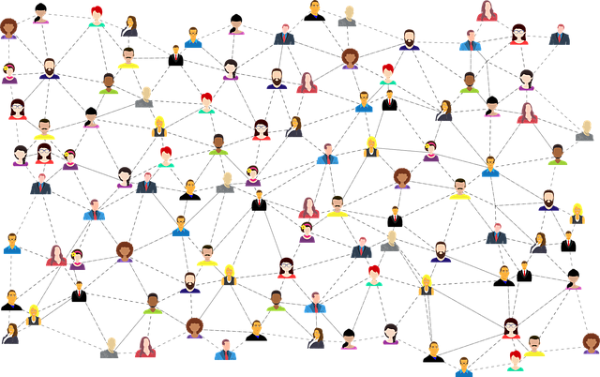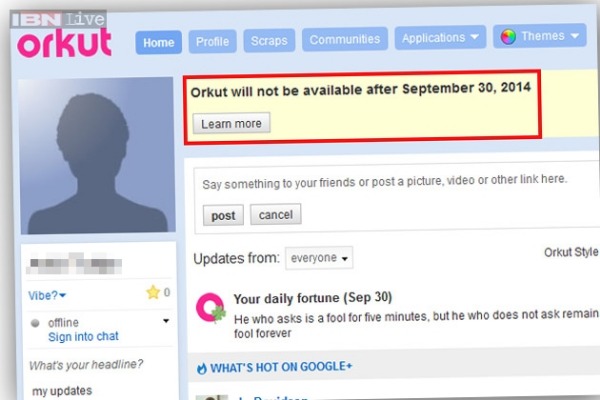You've Been Facebooked: Social Media in 2006

Looking back at Facebook in 2006 for your consideration of where it is today.
Mark Zuckerberg was testifying recently in a landmark antitrust trial brought by the U.S. Federal Trade Commission (FTC) against Meta. The FTC alleges that Meta, through its acquisitions of Instagram in 2012 and WhatsApp in 2014, has unfairly maintained a monopoly in the social networking market. The government claims these purchases were part of a strategy to "neutralize" competitors and stifle innovation
I wrote a post here in 2006 when Facebook first became available to the general public. Initially, it was launched in 2004 as "TheFacebook" and was limited to Harvard students. Over time, it expanded to other universities and eventually opened up to anyone aged 13 or older with a valid email address in 2006. I have repurposed that old post here in an updated version.
I jumped in right away. I was at a university, and I immediately thought this would be big with students, and that the faculty needed to know what it was about. The faculty was not interested in the presentations I offered. I did one on "social media" and where it was headed.
Facebook wasn't the first or the only player.
- MySpace was very popular at the time, and it was the go-to platform for music lovers and personal profiles.
- YouTube launched in 2005 and was gaining traction as the place for video sharing.
- Flickr was the favorite for photo sharing and had amateur as well as professional photographers.
- LinkedIn: Focused on professional networking, it was already carving out its niche.
- Friendster's popularity was waning, but it was still a notable player in the early social media scene.
- The lesser-known Orkut gained popularity in Brazil and India but not in the U.S. It was Google's failed attempt at social networking.
In 2004, the soon-to-be social networking giant was a baby called "The Facebook.” The19-year-old co-founder and CEO Mark Zuckerberg needed to explain the concept behind the site,. Check out this explanation he did in his first-ever television interview with CNBC on April 28, 2004.
In my 2006 post, I wrote about the American fascination with turning nouns into verbs, so for a time people were saying that you could be "facebooked." That verb meant the action of 1) looking someone up on Facebook or 2) asking someone to be your friend on Facebook.
"I Facebooked that girl I met at the party last night, and she Facebooked me this morning, so now we're friends."
You could also "poke" someone which was a suggestive term for a kind of gentle message without content. You could send an email-style message to them or leave a message on their "wall."
It is interesting to read what Zuckerberg said 19 years ago about the website and consider where it is today. The definition of Facebook, according to founder Mark Zuckerberg in 2006:
"The idea for the website was motivated by a social need at Harvard to be able to identify people in other residential houses. Harvard is a fairly unfriendly place. While each residential house listed directories of their residents, I wanted one online directory where all students could be listed. And I've always enjoyed building things and puttering around with computer code, so I sat down and in about a week I had produced the basic workings of the site.
We had a launch plan to enter into other colleges based on where friends would be most likely to overlap, so the site spread organically based upon that model, and now we operate on a broad spectrum of campuses. It doesn't make sense to exclude anybody or any college from the resources that Facebook offers. This is a product that should be fun and useful for all college students.
We don't view the site as an online community. We bill it as a directory that is reinforcing a physical community. What exists on the site is a mirror image of what exists in real life.
To a certain extent, the website is unfortunate because it oversimplifies things. Everybody's concept of having a friend is different. It can definitely blur the relationships that exist between people. But in the end, I think that thefacebook can only reinforce preexisting communities. We think we have been particularly successful in strengthening those relationships that exist between people who are only “fringe friends.
It's not unusual for us to receive an email from somebody saying, "I spend all of my time on your website and now I have less of a social life than I had before." We would much rather have people meet people through the website and go out and party than stay at home on a Friday night reading other people's profiles. And it's surprising, but we have actually received far less complaints about stalking than we otherwise would have expected."
Here are some of my 2006 stats about Facebook:
- 12 million users (*MySpace has 54 million users)
- 300 million page views per 24-hour period - page views surpasses Google
- Facebook comes in seventh in terms of overall traffic on the entire Web
- 70% of users use the site every day
- 85% use it once a week
- 93% visit monthly
- The site makes more than a million dollars a month in ad revenue
- Since its start, a high school edition and a photo upload and tagging option were added
I joined Facebook mostly to see what it was all about. I knew that my college-aged sons both used it. (It seemed like my younger son - a freshman in 2005 - met a hundred people at his school through Facebook during orientation and the first weeks, plus all his high school friends at other schools that were added to his friends list, and then their friends who added him.
I felt pretty sad at first because I had no one to add to my list. I started with my sons, who "allowed" me to be their friend list (you do have to approve someone's request to be added), though they made me promise never to put something on their wall. Facebook was not really for mom and dad.
Because early on, parents and adults played no real role in Facebook (though alumni can create accounts for their alma mater) I didn't expect to find any of my classmates there. Faculty could have a profile at their school, but that was rare in 2006.
What really bothered me at first was that my profile said, "You have 0 friends at NJIT." I planned to do a presentation to faculty at NJIT about this new website, so I had to Facebook a few students that I thought would say yes to my request. Then I started searching students I had taught in my former K-12 days. Found a few and sent them a message. And that led to a few of their classmates finding me. Social networking...
When I did my first presentation, I had 37 friends - which by Facebook standards was pretty pathetic. It for younger readers to imagine these early social media ( aterm no one was using) times. I only had 55 people on my AOL AIM buddy list, so 37 seems was about right.
When I showed the site to faculty and academic and non-academic friends, the most common comments were:
Yeah. So what's the point? [Remember, most of my friends are old.]
Why does everyone seem to have an alcoholic drink in their hand in all the pictures? [sad but true]
Many more females than males on Facebook. [True]
Wouldn't it scare you if you had a daughter and she was posting pictures, her dorm room #, email address and other info online? [Yes}
Doesn't it scare you that your sons are doing that? [To a degree - but maintaining a common double standard, not as much.]
What about identity theft? [As with any sitaution where you reveal personal information, facebook could open you up to id theft by giving someone enough information to attempt to create a fake account.]
One comment I heard did turn out to be true later that year. "Don't you think employers will check this kind of site when screening clients?" I had heard that but I doubted it would be widespread. It turned out that employers could get access through employees who were students, faculty and alumni from an applicant's school. I saw a posting that said "Monster.com [a very popular jobs site in 2006] is who you portray you are, but Facebook is who you really are."
In the fall of 2005, North Carolina State University disciplined several students for underage drinking after a resident assistant found party photos of them on Facebook. A few days after students rushed the football field following a Penn State win over Ohio State, campus police found pictures of the incident containing identifiable students on Facebook. Northern Kentucky and the University of Kentucky both have disciplined students they had seen drinking in pictures posted on Facebook. Campus police at George Washington University use Facebook to find underage drinkers. Employers and the career center at the University of Kansas use Facebook to evaluate students being considered for KU jobs.
People commented that "You can't seriously think that these people actually have 345 "friends?" Well, not the way we may have once defined "friend." I'm pretty confident that someone who has 345 friends on Facebook realizes that they are not friends in the same way as their 6 close friends that they see face-to-face regularly.
In 2006, I Facebooked Mark Zuckerberg. He had 323 friends already, but hey, you can always use another friend, right?


 You won't be logging into Orkut any more - if you ever did log in. Do you know about Orkut? Maybe this post about its demise is also your introduction to Google’s first foray into social networking.
You won't be logging into Orkut any more - if you ever did log in. Do you know about Orkut? Maybe this post about its demise is also your introduction to Google’s first foray into social networking.